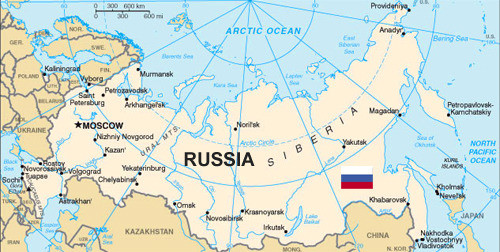re Antony Beevor’s book re WWII

Subject: re Antony Beevor’s book re WWII
Date: Fri, 7 Aug 2015 15:51:31 +0100
From: Antony Penaud <antonypenaud@yahoo.fr>
Antony Penaud completed his D.Phil. (University of Oxford) in 2000. He is French and lives in London.
His essays on Russia and Ukraine can be found on www.scribd.com/antonykharms
—
The headline of Beevor’s article in The Guardian (1) is “By banning my book, Russia is deluding itself about its past”.
There are two mistakes (lies?) in this headline: there is no ban (2), and what happened was not at state level but at regional level.
The reader who just read the headline of that article now thinks that Russia banned a book written by Beevor, which is not true.
In his article, Beevor writes “Jewish officers, who might have far greater reasons for revenge, did what they could to save women from attack.”
Just imagine if a historian had said the opposite (that Russian officers tried to stop Jewish soldiers (3)) in a newspaper column: the reader would be – rightly – shocked.
This tendency to differentiate between the bad Soviets (Russians) and the good ones (non Russians) is not new: I had noticed it in an extraordinary BBC article (4) that was published on 5 June 2014 in which the author claimed that the Ukrainian war effort was greater than the Russian war effort.
In her commitment to rearrange the truth to make it fit her ethnic based ideologies, the author wrote that Stalin was Russian!
But back to Beevor.
Why doesn’t he mention the rapes committed by soldiers of other countries?(5)
Why so little reference about the suffering of Soviet people?
In the article, Soviet suffering is only mentioned by the Russian ambassador, and by Beevor when he implies that Jewish suffering was “far greater” than Soviet suffering: we don’t want to do a hit parade of suffering, but by writing about Soviet suffering in this manner, Beevor is ambiguous about it.
Is it the role of a historian to write a column in a national newspaper in which he cherry picks bad things about a country, omits to say that other countries did the same bad thing, and omits to say that far worse things (over 25 million Soviet people died following the German invasion, most of them in horrific circumstances) had happened to that country before?
Following Beevor’s reasoning, one might argue that Soviet soldiers “might have far greater reasons for revenge” than say American soldiers (over 25 million Soviet victims, and they had just liberated the concentration camps)…
A couple of days later, Beevor wrote another column, this time in The Telegraph (6).
After having mentioned “the Ukraine famine unleashed by Stalin”, Beevor triumphantly ends his article with a quote from Solzhenitsyn, which was not the following:
“The great famine of 1921 shook our country, from the Urals, across the Volga, and deep into European Russia. It cut down millions of our people. But the word Holodomor was not used at that time. The Communist leadership deemed it sufficient to blame the famine on a natural drought, while failing to mention at all the grain requisitioning that cruelly robbed the peasantry.
“And in 1932-33, when a similar great famine hit Ukraine and the Kuban region, the Communist Party bosses (including quite a few Ukrainians) treated it with the same silence and concealment. And it did not occur to anyone to suggest to the zealous activists of the Communist Party and Young Communist League that what was happening was the planned annihilation of precisely the Ukrainians. The provocative outcry about “genocide” only began to take shape decades later – at first quietly, inside spiteful, anti-Russian, chauvinistic minds – and now it has spun off into government circles of modern-day Ukraine, who have thus outdone even the wild inventions of Bolshevik agitprop.
“To the parliaments of the world: this vicious defamation is easy to insinuate into Western minds. They have never understood our history: you can sell them any old fairy tale, even one as mindless as this.”
(1) http://www.theguardian.com/commentisfree/2015/aug/05/banning-book-russia-past-holocaust-red-army-antony-beevor
(2) According to a leak, Beevor’s books should be removed from the schools’ libraries of a region in the Urals.
A ban is when a book cannot be sold legally: this is not the case here. Beevor’s books can be sold everywhere in Russia.
It would be interesting to know how many Beevor books (if any) have been removed, and how frequently such things happen: do schools (in other countries for comparison) have total freedom when purchasing History books?
(3) It seems hard to establish such affirmation as a “fact”.
Moreover, why does Beevor choose to write such a thing when he is given a Guardian column?
When Ukrainian ultranationalists blame Jewish Bolsheviks for the Holodomor they are rightly called anti-Semitic.
Conversely, it is suspicious to blame a particular type of Soviets (here the Russians) for the Berlin rapes.
(4) http://www.bbc.co.uk/news/blogs-echochambers-27708741
(5) For example http://www.spiegel.de/international/germany/book-claims-us-soldiers-raped-190-000-german-women-post-wwii-a-1021298.html
(6) http://www.telegraph.co.uk/news/worldnews/europe/russia/11788523/When-will-Russia-stop-trying-to-re-write-history.html
